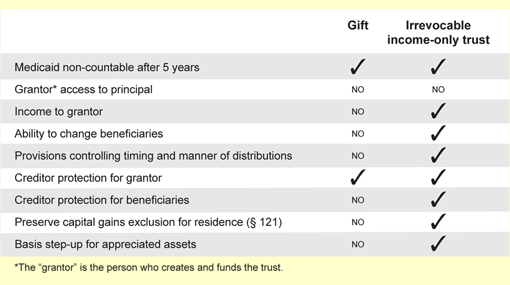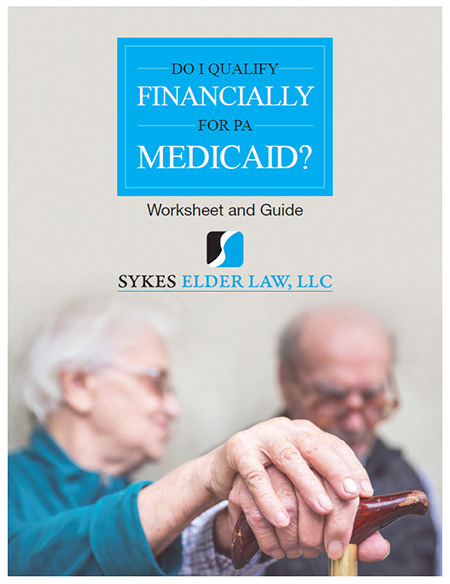(2010)Can you still leave a legacy to the next generation without losing a large portion to long term care costs?
In many cases the answer is yes, but it requires much more advance planning.
In recent years, Medicaid law has tightened restrictions on the ability of applicants to gift assets and still qualify for long term care benefits. An alternative preferred by many clients with substantial assets is an irrevocable income only trust (IIOT for short).
How it works
Consider a retired couple with, say, a combined estate of $500,000. The couple faces the statistical likelihood of losing hundreds of thousands of dollars to long term care costs (nursing home, assisted living, home care, etc.). But if that couple is healthy enough that long term care is unlikely in the next five years, they can often protect most of their assets from exposure to loss with the right pre-planning.
A well designed irrevocable trust is often an effective strategy to transfer assets, while enjoying some measure of control, receiving income, and avoiding penalties that go along with Medicaid’s five-year look-back period.
By placing most of their assets in a trust, the couple shields the assets from Medicaid spend-down. They give up access to those funds, but they can receive any income derived from the funds. They can stipulate who will receive the funds placed in the trust, as well as when and how. They enjoy other benefits, such as preserving tax advantages and shielding the trust assets from lawsuits and creditor claims.
The main challenge is getting past the five-year look-back period imposed under Medicaid laws. (Gifts and transfers to a trust usually result in ineligibility for Medicaid long term care benefits if they are made within five years prior to filing a Medicaid application.)
For this reason, it is critical to have a backup plan in case one of the couple needs care within five years after funding an irrevocable trust. A backup plan could include holding back sufficient funds to private pay for long term care, using long term care insurance, or structuring the trust to allow for such contingencies.
Superior to gifting
Most people find an IIOT is superior to an outright gift because it offers better control, tax advantages, and continuing income. (See chart below).







